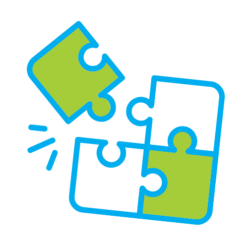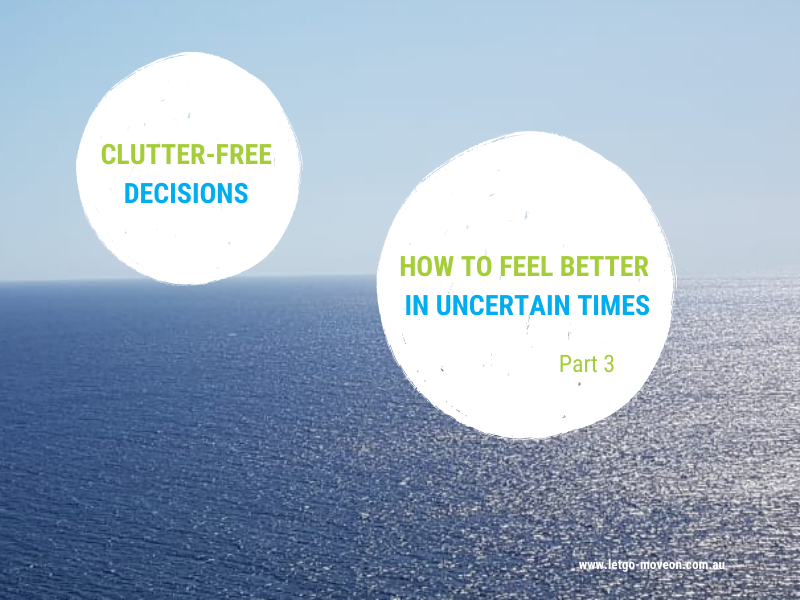Decision-making in uncertain (Covid) times
Some of our current worries (read more here) have to do with the difficult decisions we have to make right now on a daily basis.
The things that are currently happening in the world and all the changes and uncertainties in our personal lives are totally new to us.
We are forced to make numerous decisions every day related to circumstances that we don’t understand. We can’t draw on past experiences and we can’t rely on other people’s opinions and decisions.
So we get worried about our decisions.
We ask ourselves: ‘How should I decide? What’s the right decision? What’s the wrong one? How can I make sure that I make the right decision? What is going to happen if I make the wrong decision?’
Every day, new decision-making challenges come up, like these:
-
- ‘Should I be staying at home, not seeing anybody? Or is it the wrong decision? Should I instead go out and visit my old neighbour because I know that she is feeling lonely and afraid, and she has no computer to regularly share her thoughts with family and friends? Or is it better to call her? Or to drop some cakes on her doorstep?’
- ‘Should I go and buy as many packs of noodles and rice as I can get? And as many rolls of toilet paper as are available right now? Is that the right decision? For me? For my family? Or should I just buy what I/we need this week? Would that be the better decision?’
‘Decisions are where our power is.’ (Brooke Castillo)
If we allow ourselves to get confused about our own decisions, if we try to avoid making decisions, or if we have doubtful thoughts about the decisions we made, we’re weakening ourselves.
‘What if there is no right or wrong decision?’
This simple question is the solution if we wish to dissolve our decision-making worries and confusion.
We can deliberately choose the thought that worrying about our decision-making is not useful and not helpful.
We can choose to trust ourselves.
We can decide to no longer question our decisions. Because we know if we start questioning them, then we start making ourselves crazy and weak.
We can learn to believe that the decision that we make in this moment is exactly the right decision for that moment. There is no better decision than the one we make. Our decision is the best decision we can make right now. Period.
This is where our power is: We trust ourselves and make the decisions we need to make. And then we move on. (see exercise below)
Worrying about other people’s decisions
When we get mad about what other people decide and do, we are weakening ourselves. Because we have no control over other people.
As soon as we agree that there is no right or wrong decision, it immediately doesn’t make sense any longer to worry about the decisions other people make or to judge other people’s decisions.
For example:
-
- ‘Shouldn’t my neighbours keep their kids at home?’
- ‘Could it be wrong that that the health minister cancels all public events?’
- ‘Wouldn’t it be the right thing if they allowed us to make our own travel decisions?’
- ‘Shouldn’t my neighbour stop buying and hoarding all these rolls of toilet paper?’
What if we just believed that everyone is making the best decisions they possibly can in this moment?
If we let them make their decisions without judging them? If instead we felt compassion?
If we focused our attention on the range of decisions that are within our own area of control? If we just decided what we have to decide and then moved on with our life?
EXERCISE
If you struggle with making-decisions, it might be because you overthink it. Or because you allow your mind to get crazy.
Take back control over your mind and your thinking.
You can choose your thoughts. Choose deliberately.
Choose thoughts that help you to feel better.
Feeling better enables you to act the way you wish to act so that you can create the results you want to have in your daily life.
Consider these or similar thoughts – anything that sounds good and believable to you, and helps you to worry less about all the decisions in your life:
-
- I am a human being and like any other human being I can’t know for sure what’s the best thing to do. There is no absolute right or wrong decision. The decision I make in this moment is exactly the right decision for me for that moment.
- I am able to become aware of my thoughts and feelings and how they might influence my decision-making. I can clear up my mind before I make decisions. This helps me to avoid making decisions based on feelings of worry, fear, judgement, anger, etc.
- I decide not to postpone or avoid making difficult decisions. I gather the right amount of available information from reliable sources, and then I decide. And move on to the next thing I have/want to do.
- I appreciate with gratitude that there are so many areas in my life that I am in control of and that I can make decisions about.
- Making decisions makes me stronger.
- I respect the decisions that other people make for themselves. I understand that they are trying to do their best – as I do.
- I am willing to accept that other people’s decisions might interfere with my daily life or with my own personal decisions. I promise myself to be open and to listen. I trust that we’ll always find a practicable solution or a compromise everyone can live with.
- … (What’s a thought that you can learn to believe and that will help you making decisions based on a clear and clean mind?)
Expect your old confusing and worrying thoughts to come back for a while.
Be patient with yourself, just push the old thoughts out of your mind and replace them with the new thought, again and again. Your decision-making confidence will increase, decision after decision.

